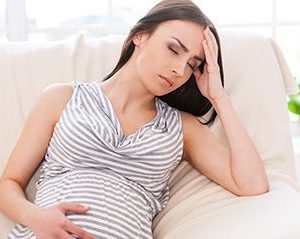- Could Your Grocery Store Meat Be Causing Recurring UTIs?
- Are You Making This Expensive Thermostat Error This Winter?
- Recognizing the Signs of Hypothyroidism
- 10 Strategies to Overcome Insomnia
- Could Artificial Sweeteners Be Aging the Brain Faster?
- Techniques for Soothing Your Nervous System
- Does the Water in Your House Smell Funny? Here’s Why
- Can a Daily Dose of Apple Cider Vinegar Actually Aid Weight Loss?
- 6 Health Beverages That Can Actually Spike Your Blood Sugar
- Treatment Options for Social Anxiety Disorder
Marijuana Can Affect Fetal Development, Even If Used Early in Pregnancy

As recreational marijuana use rises, some dispensaries are recommending it as a remedy for morning sickness, but new research warns that using it during pregnancy may significantly affect fetal growth.
While fetal exposure to cannabis in early pregnancy can reduce birth weight, those effects can become more severe if use continues throughout the pregnancy, according to researchers at Central Michigan University in Mount Pleasant, Mich.
“We show that even when marijuana use occurred only in the first trimester of pregnancy, birth weight was significantly reduced, by more than 150 grams (5.3 ounces) on average,” said senior study author Dr. Beth Bailey, a professor and director of population health research. “If that use continued into the second trimester, newborn head circumference was significantly decreased as well.”
Newborn size is one of the strongest predictors of later health and development, said first author Dr. Phoebe Dodge, an incoming pediatric resident at University Hospitals Rainbow Babies and Children’s Hospital in Cleveland.
The study, published May 16 in Frontiers in Pediatrics, found that babies who had continued exposure to cannabis in the womb were nearly 200 grams (7 ounces) lighter at birth. Their head circumference was nearly 1 centimeter (0.39 inches) smaller than that of babies not exposed to cannabis.
“Size deficits were largest among newborns exposed to marijuana throughout gestation,” Bailey said in a journal news release.
The study found that occasional use of cannabis, as for first-trimester morning sickness, may reduce fetal growth in the same way as continued use throughout pregnancy. This was also true for using cannabis before a woman was aware of the pregnancy.
The study did not have data on how much or how often participants used cannabis. Results were based on whether people did or did not use it at certain times in pregnancy.
The researchers were not able to determine if there was a link between heavy use and more pronounced outcomes in newborn growth. They said more research was needed.
“The best recommendation is that women should be advised to quit marijuana use prior to becoming pregnant,” Dodge said.
Quitting as soon as possible after getting pregnant is the second-best option, the study authors advised.
More information
The Office of Disease Prevention and Health Promotion has more on having a healthy pregnancy.
SOURCE: Frontiers in Pediatrics, news release, May 16, 2023
Source: HealthDay
Copyright © 2026 HealthDay. All rights reserved.










